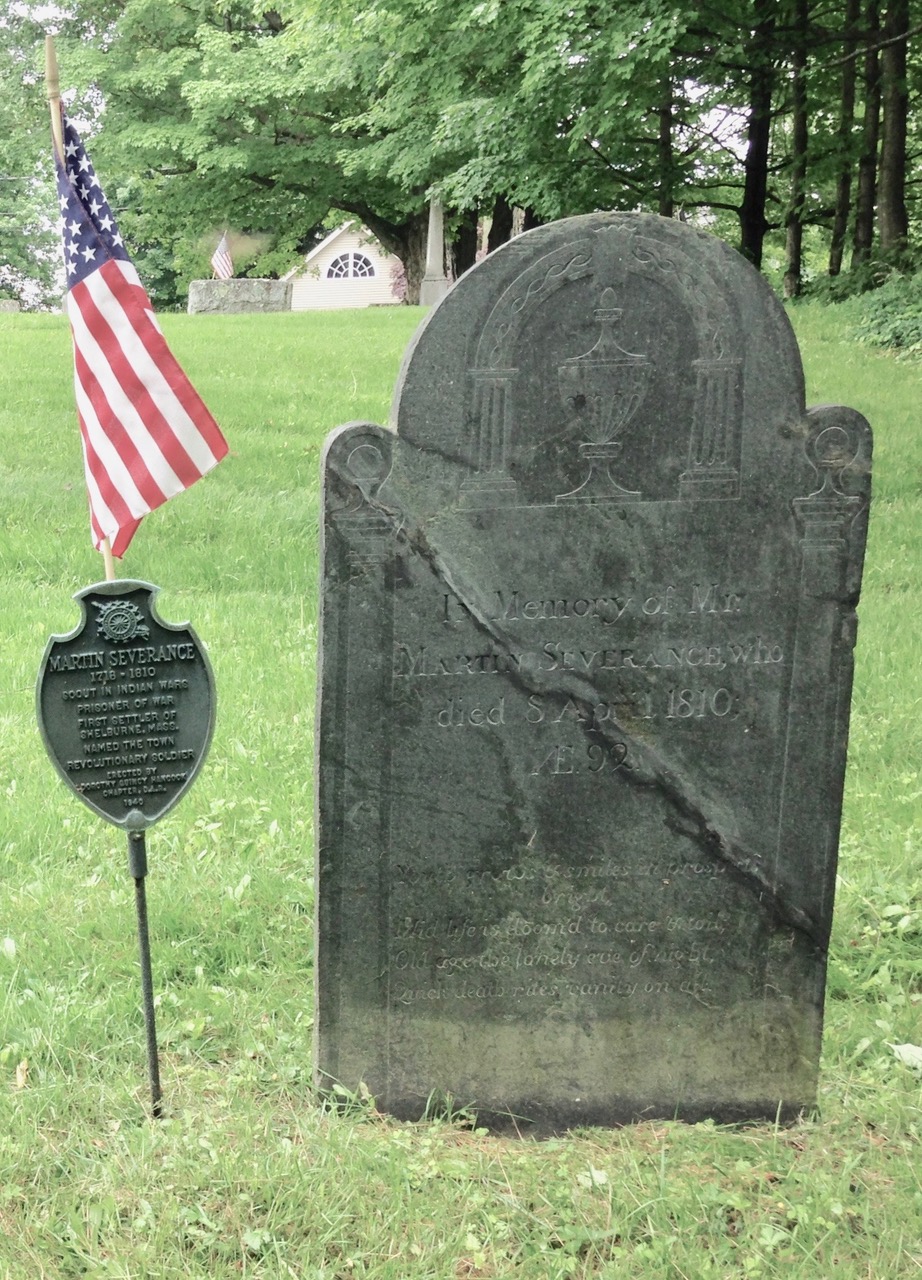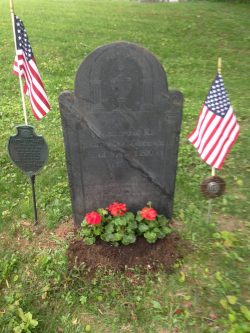When Martin Sr. returned home to Deerfield in 1760, he relocated to a small, nearby fishing village carrying all his belongings in baskets on horseback.
His wife, Patience, joined him the following year. They had 11 children: Catherine (1747–1795), Experience (1750–1828), Abigail (1753–1813), Martin Jr. (1755–1843) who also served in the Revolutionary War (A102061), Submit (1758–1831), Samuel (1761–1809), Sophia (1765–1779), Sarah (1767–1805), Mary (1769–1785), Selah (1771–1832) and Patience (1774–1809).
In 1768, he named the fishing village Shelburne. From 1775 to 1783, Martin Sr.? was a town official and served as the city surveyor of Shelburne. In September 1777, Martin Sr. signed up for the Massachusetts Militia and fought for the freedom of the colonies in the Revolutionary War. The Massachusetts archives show that he turned in a receipt for 112 miles on September 21, 1777. It was also said that when they needed vegetables in camp, Martin Sr. used a box in the shape of a coffin and filled it with cabbages. He told the sentinels “Stand aside, dead man, small pox” and space was given to him to pass. Now a Sergeant, in October 1778, he returned home to Shelburne, Massachusetts, where he lived the rest of his life.
Martin Severance Sr. died in his beloved Shelburne on April 8, 1810 at the age of 92. He is best remembered for being an American Indian fighter, a Revolutionary War soldier and for naming the town of Shelburne, Massachusetts. The Dorothy Quincy Hancock Chapter, National Society Daughters of the American Revolution, marked his grave in 1940. His gravesite is maintained by a local resident who is also an associate member of the Martin Severance Chapter in Pasadena, California, which was organized in 1914 by Adeline Belle Barry, his direct descendant.



